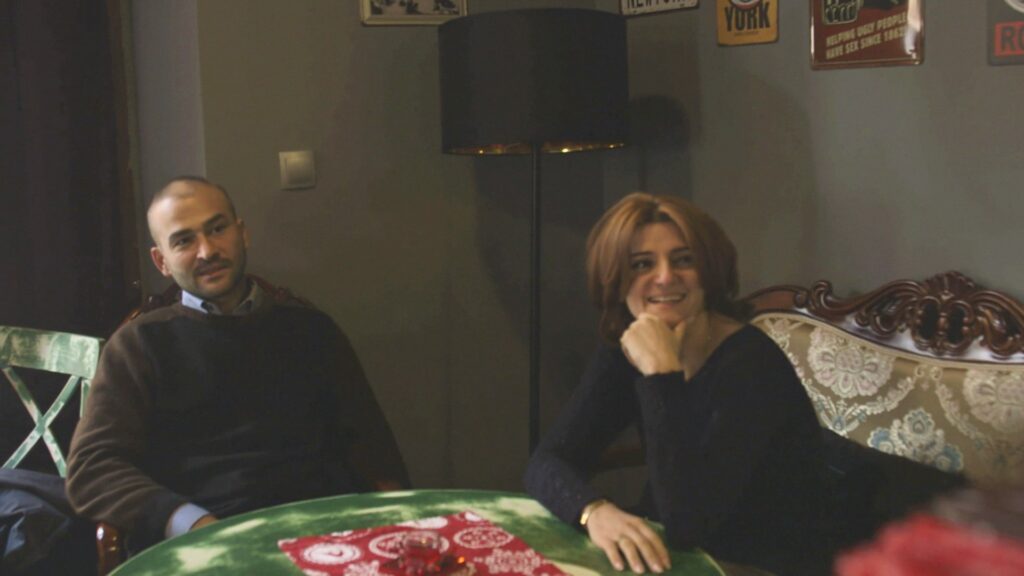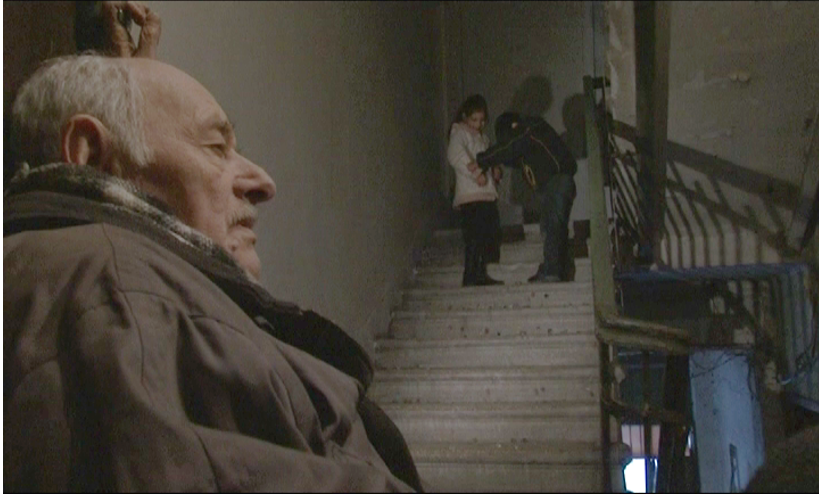Family breakup can be one of the most painful and difficult experiences in a person's life. It is not just the end of a relationship but a kind of mourning process as well because a person loses not only their partner, but also their common future, dreams and a familiar way of life. When they part, they feel a sense of emptiness and hopelessness. The first and most intense emotion at such times is grief. It is associated with deep sadness and a sense of loss. This is often replaced by anger and resentment, which can be directed at their former partner, at themselves or at the situation in general. These emotions, especially resentment accumulated in the past, prevent them from moving forward and adapting to a new way of life. As a result, separation feels like the end of life.
Luka Gabelaia’s student short film, “Two Hours” (2016), vividly portrays the pain and regret that accompany the end of a twenty-five-year marriage. The director skillfully shows the invisible barriers that are formed over time between two people, even though they share a great common past.
At the center of the story there is a couple sitting in the same car after a divorce. Their stillness and awkward silence say more than any dialogue. Although both regret what happened and clearly show their feelings for each other, they are unable to share their emotions and thoughts. This silence indicates not only a lack of communication, but also misunderstandings and emotional distance accumulated over the years. The viewer feels this weight and takes on the couple’s hopelessness.
The first part of the film is particularly impressive in the way the director shows the couple’s inner world through voiceovers. The inner monologues of both characters emphasize the tragic irony that they are sitting next to each other, experiencing the same pain and regretting the same things but neither of them knows it because they cannot share their feelings with each other. This silence becomes a symbol not only of distance but also of the overwhelming burden of regret.
The climactic moment, a car accident, gives the film a completely different direction. The director shows an alternate reality where the couple is given the chance to rewrite their own story. In this parallel world, they speak freely, recalling the happy moments of their marriage, vivid memories of their shared past. Their facial expressions show joy and warmth, which is in sharp contrast to the coldness of the real world and the pain of divorce. Not only does this alternate vision give the viewer a glimmer of hope, but also makes the viewer think about lost chances, unused moments and those unspoken words that often have the greatest meaning. The couple’s regret is expressed visually in the alternate reality. The viewer sees what they regret: happiness, love, closeness, those feelings that become reality in another world. This technique enhances the viewer’s emotional involvement.
The main topic of the film can be summed up in the phrase - “Unspoken words lead to the loss of a potentially happy life.” This is not just a story of lost love about a couple on the verge of divorce, it is the director’s analysis of how the lack of communication can destroy, break even the strongest bonds. The film emphasizes that silence between people, in some cases, is not a sign of peace or harmony. Silence in Luka Gabelaia’s film expresses more misunderstandings, resentment, fears and the accumulation of disappointments. The couple does not speak because they are afraid that their words will cause even more pain or simply do not know how to express what is in their hearts, which are their feelings. These internal barriers, in the end, cause irreparable damage to their relationship. “Two Hours” also tells us that regret is often the heaviest burden. A husband and wife still feel love for each other although it is too late to say it. Their “voiceovers” represent the unspoken confessions and desires that never left their minds. The film reminds us that every missed opportunity, every unspoken word, every suppressed emotion slowly kills a relationship.
The alternate reality shows this tragedy even more poignantly. It is not a happy ending, but rather a powerful reminder of the price their silence has cost them. It is a mirror that forces the viewer to look inside themselves and wonder if their own lives are also full of unspoken words and missed opportunities.
As for the visual effects, the colorful abstractions are used in transitional and tense moments, here the film reveals both practical and artistic compromises. Although this minimalist approach is economical and justified for a low-budget project, its excessive abstraction may cause some confusion for the viewer. The colors, by themselves, may not be informative or emotionally rich enough to fully convey the dramatic intensity and turning point of these moments. In this regard, more sophisticated or diverse visual metaphors might have had a better effect, although it should be borne in mind that the main focus of the film is not on visual special effects, but rather on emotional drama.
Overall, “Two Hours” is a powerful, emotional and thought-provoking short film that successfully criticizes the lack of communication in modern relationships. It reminds us that true love requires action, sincerity, and constant conversation. The film is a vivid example of how a student project, with few resources but a strong idea and masterful directorial vision, can create a valuable and memorable cinematic experience. The film leaves the viewer with a bitter taste of regret, but at the same time, it teaches a lesson - don't wait for "two hours," talk now, before it's too late!
Salome Gogoli






